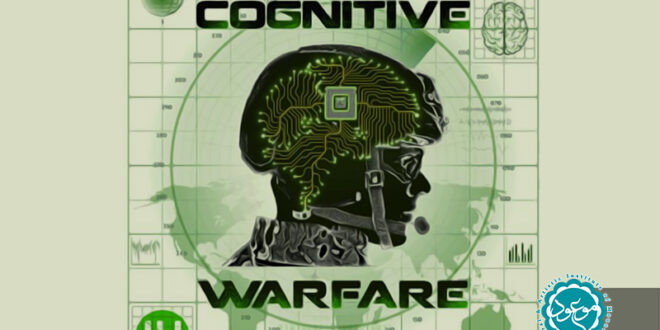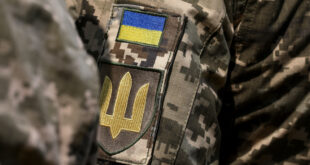Mouood: The Cognitive or Perceptual War?
Introduction
In the current political and cyber literature, we often hear a definition term Cognitive War or Perceptual War. Many friends have questions in this regard, and some have found little knowledge about this phenomenon which requires knowledge improvement. Therefore, I decided to briefly explain the nature and dimensions of this type of dangerous war to my readers.
Main discussion
1. General description
Cognitive War or Cognitive Warfare has emerged as a branch of psychological war since the early sixties.
The Cognitive War targets the cognition and perception of human beings in belief, morality, politics, culture, society, economy, and security.
As mentioned, the design and implementation of the Cognitive War are to influence the general public beliefs in thoughts, values, beliefs, norms, choices, and lifestyles.
2. How this mechanism acts
- The Cognitive War in its process; Reason, thought, attitude, vision, heart, spirit, will, resistance, and finally, the policies and behaviors of independent countries are hit and put in the service of enemies. The Cognitive War turns rivals and enemies into servants who receive no reward from their masters.
- War designers; Instead of influencing their agents in decision-making centers in the target countries, they achieve their goals by affecting the way of thinking, ideas, insights, and attitudes in expert bodies and decision-making centers without any material cost and risk of leakage.
- The users of that tactic mislead scientific information, data, and statistics in seductive packages.
- In the Perceptual War, yesterday’s beliefs transform into today’s superstitions, love to hatred, sanctity to petrification, value to counter-value, a threat to opportunity, beauty to vulgarity, and danger to security.
- The warfare aim is the goal of military wars. It is the defeat of the enemy and his surrender. But the methods of these two wars are different. Cognitive Warfare; creates crises of trust, credibility, legitimacy, acceptability, identity, credibility, and efficiency. It injects the poison of despair into the target community.
- Sometimes, instead of changing the thought, style and method, attitude, insight, choice… the enemy constructs and produces pseudo-thought (illusion), pseudo-need (artificial need), and suspicion of interest (virtual interest).
3. Who are this war enemy’s infantry?
The doers are usually some tie-knit and iron-clad technocrats in decision-making centers. Their responsibility is to manage the orientation of the war, goals, and decisions in the target countries.
4. Other facts
- In Cognitive War, complete information, pure truth, and the expression of all facts have no place.
- In a Physical War, due to large-scale killing, high cost, extensive destruction of infrastructure on both sides, it does not have many fans today. In Military Warfare, the hostility of the enemy is visual. The nations resist and do not simply surrender to enemies. If the enemy threatens them hard, they will react against the aggressors harder. In perceptual warfare, the enemy enters into the campaign in the guise of a friend. The targets do not notice the enemy’s penetration at all. They usually do not realize it till no one can do anything anymore. For this reason, it is also called Termite War. Like a termite, it silently empties the target country from inside.
- In a Physical War, when the enemy targets an insider, one of the target forces will reduce. But in cognitive warfare, in addition to one reduced person from the home front, one person is added to the enemy front. In this process, sometimes that person is hit, instead of the enemy; He hits dozens of people from his Front and surrenders to the enemy Front.
- In a visible war, one of the goals is to occupy the land. In the Cognitive War, capturing the human brain and heart is the goal.
5. Warfare techniques include:
- Zoom in and out
- Stimulate emotions, feelings
- Turning an individual issue into a social problem
- Transforming the social dilemma into political and security
- Incomplete truth-telling
- Indifference
- Violation of revolutionary thinking and strengthening of conservative thought
- Decorating luxury and aristocracy
- Labeling
- Suspicion
- Gossip
- Deception
6. Historical examples of the Cognitive War
Americans first invented the Cognitive War for the world empire in the 1960s. The United States overtakes the Soviet Union and, with the collapse of the Eastern Bloc and the Warsaw Pact member states, establishes itself as the only undisputed superpower and ruler in the world. It quietly began to generate knowledge and created organizations for the war leadership. Only tens of billions of dollars are spent annually by the Pentagon to conduct warfare against target countries.
Undoubtedly, one of the causes of the Soviet Union and the Eastern Bloc collapse is the effect of the administrative war. Experts say that Gorbachev, the last Soviet president, had lost faith in the socialist system’s effectiveness under the influence of Western warfare. Yeltsin was the first Russian federal president to rule for the West.
The Soviet people had not prepared themselves against the poisonous arrows of the war. When the public requested, the first McDonald’s branch in Moscow opened in 1991. The massive people’s presence showed that the American Soft War had already changed the way of thinking and lifestyle of the Russians thoughts, and lifestyle.
The killing of dozens of East Germans on the Berlin Wall in the hope of a dreamy and free life is the effect of this soft war. The Cognitive War plunged many people fleeing the Eastern Bloc countries from the disaster of socialism into the well of capitalism. It directed them from a closed cemetery to a stinking, soulless, and emotionless free world.
The Cognitive War brought such a disaster to the Eastern Bloc that with the collapse of the Soviet Union in 1990, they quickly changed their lifestyle and became very popular with the Western lifestyle. In the Western Soft War against the Eastern Bloc, the national identity crisis was the crucial negative effect.
Induced by changing their lifestyles and breaking down traditions, values, beliefs, and norms. We should note that the policies and violent behavior of the police governments of these countries prepared the ground for the enemies and paved the way for the success of the war.
7. The most important goal of the Cognitive War in the present age
Iran has become the number one victim of this hidden war. China, Russia, and North Korea have mostly escaped the scourge of this horrific war due to the negative or positive measures they have devised. But Iran has undoubtedly been the biggest and most important victim of this war, especially in the last two decades.
Unfortunately, the US war on Iran has been largely successful in the Reform Party. They showed anti-Americanism at the beginning of the revolution. Unfortunately, some of the members of this Party are now liberal and pro-Western elements. The revolution leader’s intelligence and the loyal forces of the revolutionary leadership were the most resisting elements against this cruel war. Iran could disappear, and nothing was left, or Iran’s political and geopolitical geography could receive fundamental changes to force Iran to divide into several small political units. The revolutionary Shiaa ideology saved it!
8. What should we do?
The Revolutionary Front must always:
- Strengthen trust in God and has a devotion to God’s help.
- Leave your eyes, ears, and heart to the community leader.
- Be alert and insightful.
- Observe the movements of enemies.
- Maintain sensitivity to the values and ideals of the revolution.
- Be ready to participate in all fields.
- Watch. May the infidels and the merciful be among them?
- Maintain your solidarity.
- Be honest and hopeful.
- Jihadi service; Have faithful help to the people.
- Fight corruption and deviation at any level.
- Make the right choices.
- Strengthen the spirit of sacrifice and self-sacrifice.
Observing the above cases will protect against the attacks of foreign enemies and infiltrators. In this case, the enemy in the warfare, like Physical Wars, will suffer severe defeats and disgrace, and the home front will get unique opportunities from the heart of threats.
By: Mohammad Amiri
 Mouood Mouood English Edition
Mouood Mouood English Edition




